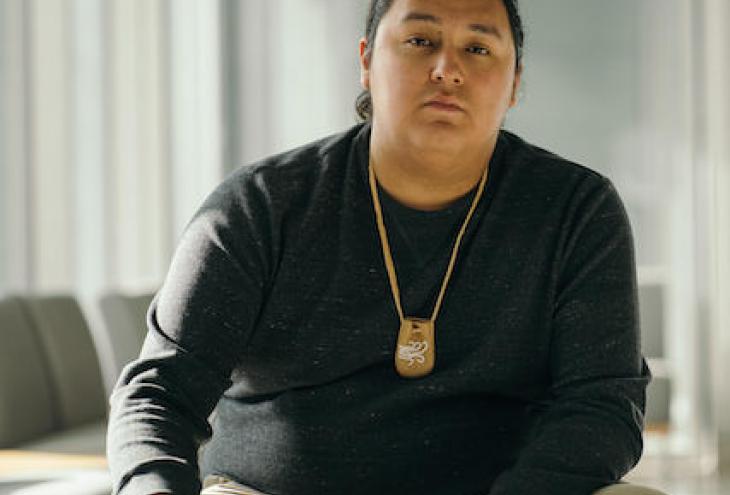My dad always told me that education is the key to getting where I wanted to go. My mom was the same way — she told me to study hard. And I listened. We were always a very close, very tight-knit family. I grew up on the Forest County Potawatomi (FCP) Reservation in northern Wisconsin. My dad, who’s Forest County Potawatomi, moved there in 2004 for a job with the FCP. Forest County is a beautiful rural area, with tall green trees and the nearest big town an hour away.
I went to Wabeno High School, which is very small — there were 30 kids in my class. Coming from a small school, where I felt isolated, I wanted to go to a big school for college. I wanted to be in a big environment, plus I knew there would be more opportunities available in a university program. I got in to the UW–Madison’s Precollege Enrichment Opportunity Program for Learning Excellence, or PEOPLE, in my fresh-man year. PEOPLE is a college prep program that holds classes for three weeks each summer, and I was granted a full scholarship to UW–Madison.
Growing up, I was always good at math and science. In my junior summer I was accepted to the Engineering Summer Program, a crash course for the first year of college, with classes in chemistry, physics, calculus, and technical communications as well as engineering. I met a lot of engineering majors there, and that’s where I became interested in industrial engineering. It’s all about solving problems, and it’s an efficient way of doing things. That clicked with me. The director of that program told me that I was going to be the first Native engineer he’d ever met.
When I got into UW–Madison the change from a small school to a big one was hard. My high school didn’t offer any AP courses to help me. I didn’t know if I would be prepared for the rigor of college classes even though I graduated from high school with a 3.97 GPA. In my first semester at college I got a C in chemistry. I was so distraught — I knew that I could do so much better than that. Homework was less of a challenge, but I felt alone that first year and was missing my family.
Then I got really involved with campus communities like Wunk Sheek, our Native student organization. They helped me get through freshman and sophomore year. We hold events on campus centered around Native culture and life on campus. After I was elected traditional affairs officer we started the student drum up again and organized events and activities including basket weaving and powwows. The Native community has made this feel like a second home. Being involved culturally has also helped me feel grounded. I just started powwow dancing again after eight years. This summer I made my regalia and went on the powwow trail, competing in men’s traditional in the Menominee Powwow. It felt great to do that.
Last summer I worked in the Simcox Laboratory on campus. It’s a biochem lab, which is far from industrial engineering, but it’s been really beneficial for me. Professor Simcox, who runs it, is Native, and she offered a job to any Native who wanted to be a lab tech. Working in her lab made me realize that research is something that interests me. I joined AISES this summer, and at the AISES National Conference in Milwaukee I’ll present my research as part of Professor Simcox’s lab. She helped me with that whole process.
I interviewed a quality engineer in my Intro to Engineering class and learned that his role is similar to what I want to do — that helped me know that I’m on the right path. When I graduate I want to work in industrial engineering, earn my master’s degree, and someday own my own engineering firm. Maybe I’ll do some consulting work on other projects as well, but with that success, I want to help my Santee Sioux community. The Santee Dakota Sioux Reservation, where the rest of my relatives live, is a small, really poor place. Life there is hard. I want to help purify their water and do other projects on the rez.
I think I got to where I am now because of my independence. I’m a hard worker, and when I want to get something done, I make sure I do it. Independence has kept me on track. This past year I tutored Native high schoolers and middle schoolers in Madison in STEM. It felt nice to help them and to serve as a Native role model.










